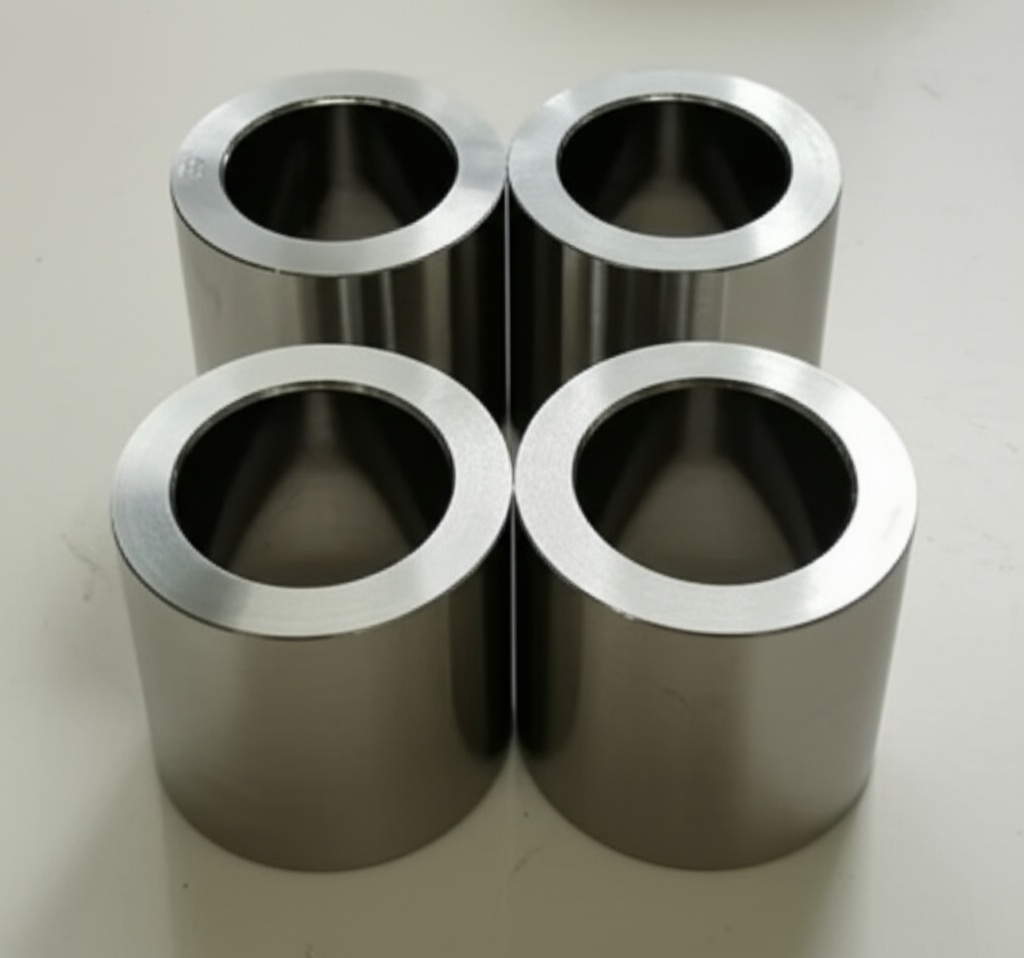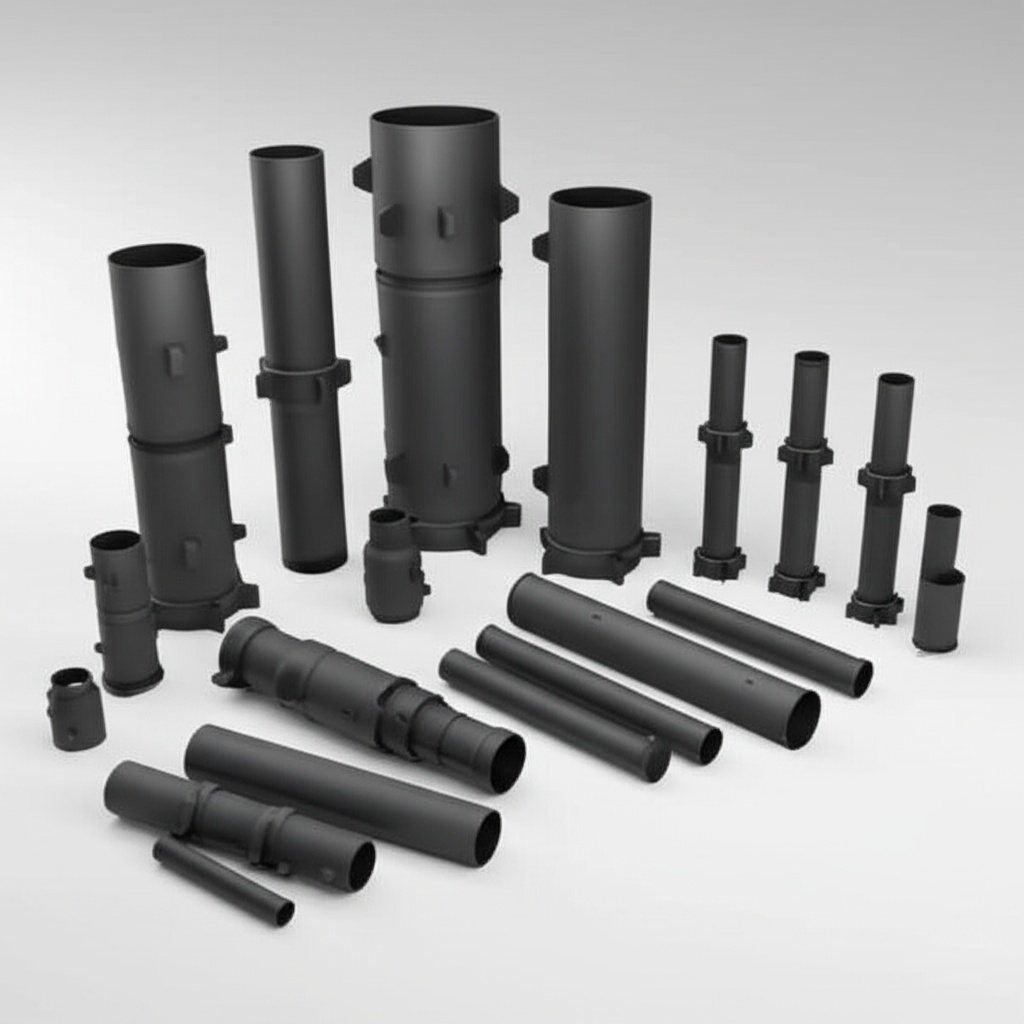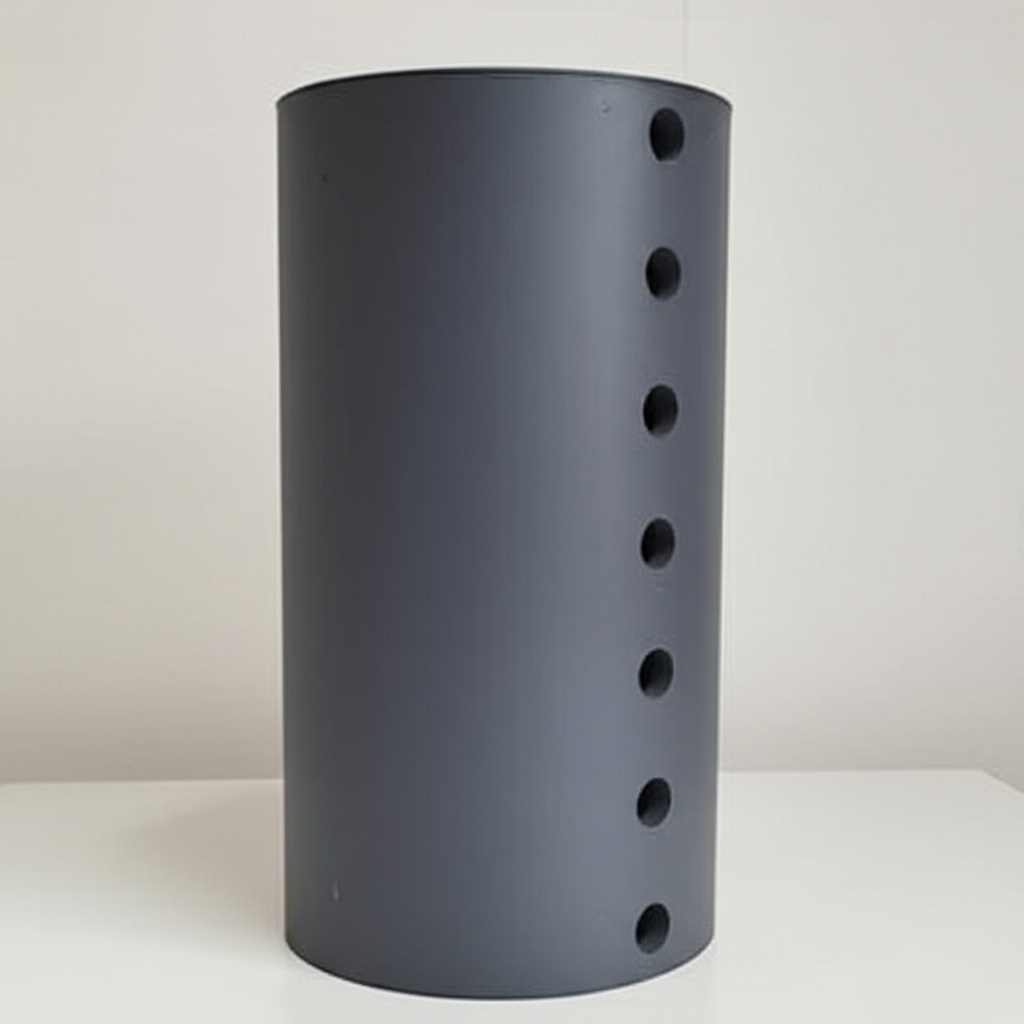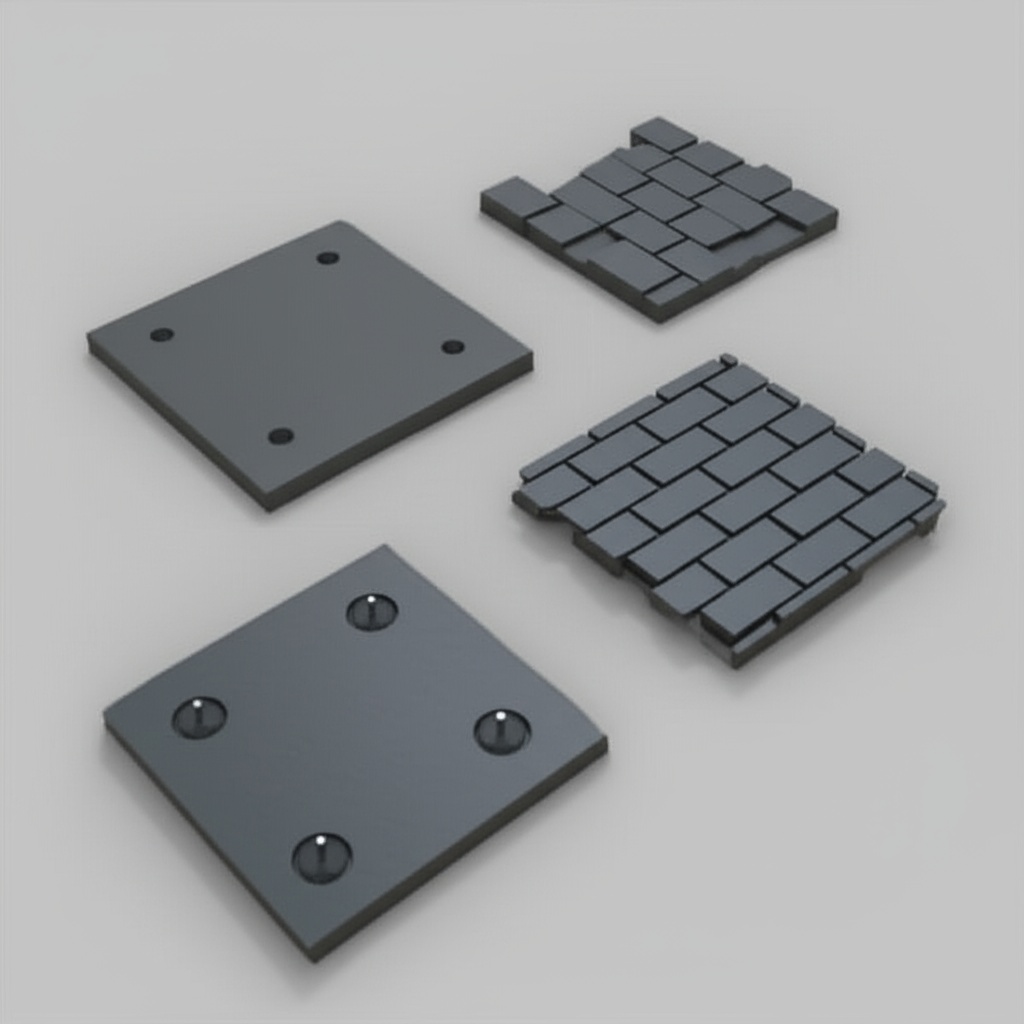SiC for Sale in Brazil: Market Information

Share
SiC for Sale in Brazil: Market Information
Brazil’s burgeoning industrial landscape, characterized by significant growth in sectors like semiconductors, automotive, and renewable energy, is driving an increasing demand for advanced materials. Among these, silicon carbide (SiC) stands out as a critical component, offering unparalleled performance in demanding applications. As a leading technical content writer specializing in custom silicon carbide products and equipment, we delve into the Brazilian market for SiC, providing valuable insights for engineers, procurement managers, and technical buyers.
Introduction: Custom Silicon Carbide’s Industrial Importance
Custom silicon carbide products are not merely materials; they are engineered solutions designed to excel in the most challenging industrial environments. Their unique combination of properties – extreme hardness, superior thermal conductivity, excellent chemical inertness, and high-temperature stability – makes them indispensable for high-performance applications. From enhancing the efficiency of power electronics to ensuring the reliability of aerospace components, custom SiC is at the forefront of material innovation, driving progress across diverse industries.
Main Applications: SiC Across Key Brazilian Industries
The versatility of silicon carbide allows it to permeate a vast array of critical industries, contributing significantly to efficiency, durability, and performance. In Brazil, the adoption of SiC is gaining momentum in:
- Semiconductor Manufacturing: SiC wafers and components are vital for high-power, high-frequency semiconductor devices, crucial for next-generation electronics and data centers.
- Automotive Companies: SiC power modules are revolutionizing electric vehicles (EVs) and hybrid vehicles by improving efficiency, reducing weight, and extending range.
- Aerospace Companies: For high-temperature and lightweight applications, SiC composites and components are essential in jet engines, missile systems, and spacecraft.
- Power Electronics Manufacturers: SiC devices offer superior switching speeds and lower energy losses, making them ideal for inverters, converters, and power supplies.
- Renewable Energy Companies: SiC plays a pivotal role in solar inverters and wind turbine converters, enhancing energy conversion efficiency and system reliability.
- Metallurgical Companies: SiC refractories and kiln furniture withstand extreme temperatures and corrosive environments in metal processing and foundries.
- Defense Contractors: Its ballistic properties and high stiffness make SiC valuable for armor, lightweight structural components, and high-performance optics.
- Chemical Processing Companies: SiC components resist harsh chemicals and abrasion, used in pumps, valves, and heat exchangers.
- LED Manufacturers: SiC substrates are used for high-brightness LEDs, enabling more efficient and durable lighting solutions.
- Industrial Equipment Manufacturers: For wear parts, seals, bearings, and nozzles, SiC offers extended service life and reduced maintenance.
- Telecommunications Companies: SiC is increasingly used in high-frequency and high-power applications for base stations and communication infrastructure.
- Oil and Gas Companies: Abrasion-resistant SiC parts are utilized in drilling equipment, pumps, and downhole tools for improved durability.
- Medical Device Manufacturers: Biocompatibility and wear resistance make SiC suitable for certain medical instruments and implants.
- Rail Transportation Companies: SiC power modules improve the efficiency of traction systems in electric trains.
- Nuclear Energy Companies: SiC composites are being researched for their excellent radiation resistance and high-temperature performance in nuclear reactors.
Why Choose Custom Silicon Carbide Products?
While standard SiC components offer significant benefits, custom silicon carbide products provide a distinct advantage. Tailored to specific application requirements, they unlock maximum performance and efficiency. The benefits of customization include:
- Optimized Performance: Engineered to precise specifications, ensuring optimal thermal resistance, wear resistance, and chemical inertness for the intended environment.
- Enhanced Durability: Customized designs can address specific stress points and operating conditions, leading to extended component lifespan.
- Cost Efficiency: By precisely meeting application needs, custom SiC can reduce material waste and optimize manufacturing processes, leading to long-term cost savings.
- Seamless Integration: Designed to fit perfectly into existing systems, minimizing installation complexities and maximizing operational uptime.
- Problem Solving: Custom SiC is often the solution when off-the-shelf materials fail to meet the stringent demands of innovative or extreme applications.
Recommended SiC Grades and Compositions for Brazil’s Industries
The choice of SiC grade is paramount for optimal performance. Different manufacturing processes yield distinct properties:
| SiC Grade | Properties | Typical Applications (Relevant to Brazil) |
|---|---|---|
| Reaction-Bonded SiC (RBSC) | Excellent wear resistance, good thermal shock resistance, high stiffness, isotropic properties. | Pump components, mechanical seals, nozzles, wear plates in mining and general industrial machinery. |
| Sintered Alpha SiC (SSiC) | High purity, superior hardness, excellent corrosion resistance, high strength at elevated temperatures. | Semiconductor processing equipment, high-temperature furnace components, chemical processing parts, armor. |
| Nitride-Bonded SiC (NBSC) | Good thermal shock resistance, excellent creep resistance, moderate cost. | Kiln furniture, refractories, wear parts in metallurgical and heavy industrial applications. |
| Chemical Vapor Deposition (CVD) SiC | Extremely high purity, near-theoretical density, superior strength and stiffness, excellent chemical resistance. | Semiconductor equipment, optics, mirror substrates, high-performance seals. |
Design Considerations for SiC Products
Designing with silicon carbide requires a deep understanding of its unique characteristics to ensure manufacturability and optimal performance. Key considerations include:
- Material Brittleness: SiC is a hard but brittle material. Designs should minimize sharp corners, stress concentrations, and thin sections that could lead to fracture.
- Geometry Limits: Complex geometries can be challenging and costly to machine. Simpler, robust designs are often more effective.
- Wall Thickness: Uniform wall thickness helps in minimizing internal stresses during manufacturing and thermal cycling in operation.
- Holes and Features: Optimize the number and size of holes, and consider chamfers or radii at hole entrances to reduce stress.
- Joining Methods: Consider how SiC components will be joined to other materials. Brazing, adhesive bonding, or mechanical fastening require specific design features.
Tolerance, Surface Finish & Dimensional Accuracy for SiC
Achieving tight tolerances and specific surface finishes in SiC components is crucial for high-precision applications. These factors directly impact performance, especially in wear-critical or sealing applications:
- Achievable Tolerances: Precision grinding and lapping techniques allow for very tight dimensional tolerances, often in the micron range, depending on the part size and complexity.
- Surface Finish Options: From as-fired rough surfaces to highly polished, mirror-like finishes (Ra values less than 0.1 µm), the surface finish can be tailored to reduce friction, enhance sealing, or improve optical properties.
- Dimensional Accuracy: High-precision machining and advanced metrology ensure the dimensional accuracy required for critical assemblies and high-performance systems.
Post-Processing Needs for Optimal SiC Performance
To enhance the performance and durability of SiC components, various post-processing steps may be required:
- Grinding: Precision grinding is essential for achieving tight tolerances and desired geometries.
- Lapping & Polishing: Used to achieve exceptionally smooth surfaces for critical sealing applications, optical components, or reduced friction.
- Sealing: For porous SiC grades, impregnation or coating may be necessary to improve impermeability.
- Coating: Applying specific coatings can enhance properties like corrosion resistance, wear resistance, or conductivity for specialized applications.
- Brazing & Joining: Integrating SiC with other materials often requires specialized brazing techniques to create strong, hermetic seals.
Common Challenges and How to Overcome Them in SiC Applications
While silicon carbide offers remarkable advantages, its unique properties can present challenges:
- Brittleness: SiC’s inherent brittleness requires careful design and handling to prevent chipping or fracture. Proper design minimizes stress concentrations.
- Machining Complexity: Its extreme hardness makes SiC difficult and costly to machine, often requiring diamond grinding tools and specialized techniques. Strategic design for manufacturability can mitigate this.
- Thermal Shock: While generally good, extreme and rapid temperature changes can still induce thermal stress. Proper material selection (e.g., RBSC) and design can enhance thermal shock resistance.
- Cost: The raw materials and manufacturing processes for SiC can be more expensive than conventional materials. However, its extended lifespan and superior performance often result in a lower total cost of ownership.
How to Choose the Right SiC Supplier for Brazil
Selecting a reliable silicon carbide supplier is crucial for ensuring the quality and performance of your components. When looking for SiC for sale in Brazil, consider the following:
- Technical Capabilities: Assess their expertise in designing and manufacturing custom SiC parts, including their material science knowledge and engineering support.
- Material Options: Ensure they offer the specific SiC grades (SSiC, RBSC, etc.) required for your application.
- Quality Control: Verify their quality management systems, certifications (e.g., ISO 9001), and testing procedures.
- Manufacturing Processes: Understand their production capabilities, including their machining, finishing, and post-processing services.
- Experience and Reputation: Look for a supplier with a proven track record in serving industries similar to yours.
- Customization Support: For custom SiC, a supplier’s ability to collaborate on design, prototyping, and iterative development is paramount.
- Supply Chain Reliability: Especially for international procurement, assess their logistical capabilities and commitment to timely delivery.
It’s worth noting the significant role that Chinese manufacturers play in the global silicon carbide market. Here is the hub of China’s silicon carbide customizable parts factories. As you are aware, the hub of China’s silicon carbide customizable parts manufacturing is situated in Weifang City of China. This region has become home to over 40 silicon carbide production enterprises of various sizes, collectively accounting for more than 80% of the nation’s total silicon carbide output.
We, Sicarb Tech, have been instrumental in introducing and implementing silicon carbide production technology since 2015, assisting local enterprises in achieving large-scale production and technological advancements in product processes. We have been a witness to the emergence and ongoing development of the local silicon carbide industry.
Based on the platform of the national technology transfer center of the Chinese Academy of Sciences, Sicarb Tech is part of Chinese Academy of Sciences (Weifang) Innovation Park, an entrepreneurial park that collaborates closely with the National Technology Transfer Center of the Chinese Academy of Sciences . It serves as a national-level innovation and entrepreneurship service platform, integrating innovation, entrepreneurship, technology transfer, venture capital, incubation, acceleration, and scientific and technological services.
Sicarb Tech capitalizes on the robust scientific, technological capabilities and talent pool of the Chinese Academy of Sciences . Backed by the Chinese Academy of Sciences National Technology Transfer Center, it serves as a bridge, facilitating the integration and collaboration of crucial elements in the transfer and commercialization of scientific and technological achievements. Moreover, it has established a comprehensive service ecosystem that spans the entire spectrum of the technology transfer and transformation process. This ensures more reliable quality and supply assurance within China.
Sicarb Tech possesses a domestic top-tier professional team specializing in customized production of silicon carbide products. Under our support, 503+ local enterprises have benefited from our technologies. We possess a wide array of technologies, such as material, process, design, measurement & evaluation technologies, along with the integrated process from materials to products. This enables us to meet diverse customization needs. We can offer you higher-quality, cost-competitive customized silicon carbide components from China. You can explore some of our successful applications on our cases page.
We are also committed to assisting you in establishing a specialized factory. If you need to build a professional silicon carbide products manufacturing plant in your country, Sicarb Tech can provide you with the technology transfer for professional silicon carbide production, along with a full range of services (turnkey project) including factory design, procurement of specialized equipment, installation and commissioning, and trial production. This enables you to own a professional silicon carbide products manufacturing plant while ensuring a more effective investment, reliable technology transformation, and guaranteed input-output ratio.
Cost Drivers and Lead Time Considerations for SiC
The cost and lead time for custom silicon carbide products are influenced by several factors:
- Material Grade: High-purity or specialized SiC grades (e.g., CVD SiC) are typically more expensive than standard grades (e.g., RBSC).
- Part Complexity: Intricate geometries, tight tolerances, and complex features require more advanced machining and contribute to higher costs and longer lead times.
- Volume: Larger production volumes can often benefit from economies of scale, reducing the per-unit cost. However, initial tooling costs might be higher.
- Surface Finish Requirements: Achieving very fine surface finishes (lapping, polishing) adds to both cost and lead time due to the specialized processes involved.
- Post-Processing Needs: Additional steps like coatings, sealing, or complex assembly will impact overall cost and delivery schedules.
- Supplier Location & Logistics: International shipping and customs duties will influence the final cost and lead time for products sourced from outside Brazil.
FAQ (Frequently Asked Questions) about Silicon Carbide
Q1: What are the primary advantages of using SiC over other technical ceramics in high-temperature applications?
A1: Silicon carbide offers superior strength, hardness, and thermal conductivity at elevated temperatures compared to many other technical ceramics like alumina or zirconia. It also exhibits excellent thermal shock resistance and chemical inertness, making it ideal for extremely harsh environments where other materials would degrade.
Q2: Can silicon carbide components be repaired or refurbished?
A2: Due to its extreme hardness and brittleness, repairing SiC components is generally challenging and often not cost-effective, especially for critical applications. Minor surface damage might be addressed through specialized grinding, but significant damage typically necessitates replacement to maintain performance integrity.
Q3: What industries in Brazil are expected to see the most significant growth in SiC adoption?
A3: The semiconductor and power electronics industries are poised for substantial growth in SiC adoption in Brazil, driven by the demand for more efficient electronic devices and electric vehicles. Renewable energy (solar inverters, wind turbines) and advanced industrial manufacturing sectors are also key growth areas due to the increasing focus on energy efficiency and operational longevity.
Conclusion: Investing in Custom SiC for Brazil’s Industrial Future
The demand for high-performance materials in Brazil’s rapidly expanding industrial sectors underscores the critical role of custom silicon carbide. Its unparalleled properties in terms of thermal resistance, wear resistance, and chemical inertness make it an indispensable choice for engineers and procurement managers seeking to optimize performance and ensure long-term reliability. By understanding the diverse applications, design considerations, and the nuances of supplier selection – including the advantages offered by specialized manufacturers like Sicarb Tech – Brazilian industries can confidently invest in custom SiC solutions, driving innovation and maintaining a competitive edge in the global market. The strategic procurement of high-quality custom SiC products is not just an expense; it’s an investment in superior operational efficiency, extended product lifespan, and technological advancement for Brazil’s industrial future.

About the Author: Sicarb Tech
We provide clear and reliable insights into silicon carbide materials, component manufacturing, application technologies, and global market trends. Our content reflects industry expertise, practical experience, and a commitment to helping readers understand the evolving SiC landscape.




